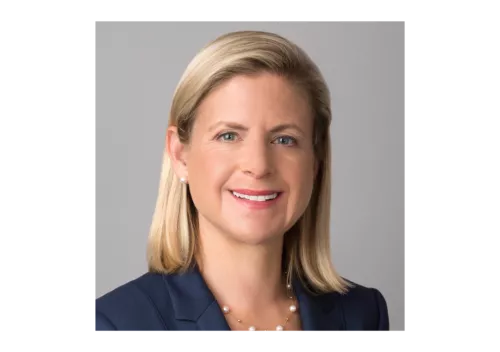Johnson & Johnson and UAW Retiree Medical Benefits Trust lead push for principles designed to tie compensation to compliance failures.
Shareholder engagement has been a public relations buzz term at public companies for several years, but it usually refers to one-way efforts by company boards to improve communication and avoid shareholder proposals during proxy season. Now, engagement is being pushed to a new level thanks to a set of principles designed to tie compensation to compliance failures, principles that grew out of a truly collaborative process between companies and investors.
Led on the investor side by UAW Retiree Medical Benefits Trust and on the industry side by Johnson & Johnson, six pharmaceutical companies and 13 institutional investors have endorsed a set of principles for recouping compensation that aim to discourage violations of health care laws, which was announced on April 4.
The Principal Elements of Leading Recoupment Policy, developed last year by a working group that included Amgen, Bristol-Myers Squibb, Eli Lilly, Johnson & Johnson, Merck and Pfizer, is meant to serve as a best practice governance strategy that can be used to bolster risk oversight by corporate boards and preserve long-term shareholder value. In addition to deterring unethical behavior, the participants hope the collaborative process through which this policy was agreed on can be a model of corporate shareholder engagement in the future.
‘This strategy of working collaboratively is unprecedented in corporate governance,’ says Meredith Miller, chief corporate governance officer of UAW Retiree Medical Benefits Trust. Creating principles that could eventually be applied across the health care industry is ‘an important landmark in corporate governance because they embrace best corporate governance practices,’ she adds.
The specific health care law that the policy addresses is the False Claims Act, which governs certain marketing, sales and manufacturing practices by health care companies that bill the federal government for Medicare and Medicaid, says Miller. The law targets such activities as off-label promotions, physician kickbacks and poor manufacturing practices.
‘We were looking at settlements to the federal government, but we weren’t inspired by specific compliance failures,’ she says. ‘We were concerned that as investors we were exposed across the health care industry.’
Health care companies account for the largest number of settlements under the False Claims Act, says Miller. The Justice Department collected $3.1 billion in fraud settlements with health care companies in fiscal year 2012, according to a Bloomberg report in March.
Together with 12 other investors, the Trust began speaking with drug makers in 2011 about ways to link health care compliance issues with compensation schemes. Discovering a best practice in Pfizer’s policies, the coalition made it the template for the recoupment principles. Just as the Trust was about to file shareholder proposals in 2011, Johnson & Johnson’s assistant general counsel and corporate secretary, Douglas Chia, invited the Trust to co-facilitate a working group being convened with implications for industry-wide adoption. Starting in March 2012, the working group developed the principles, which the five pharmaceutical companies’ boards deliberated on and finally adopted between August 2012 and February 2013. (Pfizer’s board didn’t have to adopt the principles because the company already had them in place.)
Part of the coalition’s strategy of keeping the discussion before the boards, which all had different deadlines, was to have investors file shareholder proposals at certain companies. ‘We had strong support from the corporate secretaries and the general counsels, but we wanted to make sure we followed regular processes to have it taken up by the compensation committees and endorsed by the boards,’ says Miller.
The coalition included New York State Common Retirement Fund and New York City Retirement Systems, which withdrew proposals they had filed at Amgen and Bristol-Myers Squibb, and at Johnson & Johnson and Merck, respectively, in exchange for endorsing the recoupment principles. The Trust withdrew proposals it had filed at two non-pharmaceutical companies, Qwest Diagnostics and Healthways, as well as a proposal it co-filed with New York City Retirement Systems at Boston Scientific, once those companies adopted the recoupment principles.
Clawback policies at most top companies are primarily triggered only by financial restatements and aim to recover compensation that executives have already received. An Equilar study of Fortune 100 companies in 2012 found that although 85 percent of them such policies, only a quarter of these policies made ethical misconduct not related to a financial restatement the trigger for recouping compensation. The notion of extending clawbacks to include incentive compensation not yet paid came from the Pfizer policy.
‘Clawing back pay that’s already out the door can be expensive and time-consuming,’ says Miller. ‘We were looking for a new corporate governance strategy that would be able to deter fraud in a more significant way. A more nimble policy could be clawing back compensation that had been promised but not paid out.’
A key feature of the principles is that they defer to a board’s compensation committee to determine whether an individual or a supervisor has engaged in misconduct that violates the company’s code of conduct. For example, the suggestion on Bristol-Myers Squibb’s website is that these policies will apply more broadly than just to senior executives. They also allow for public disclosure of clawbacks in compliance with SEC rules, as well as additional information that compensation committees may provide if appropriate.
The recoupment policy is the second major effort within four months by the Trust to plow a new path for shareholder engagement. In January, the Trust launched a multi-year collaboration with Walgreens to develop a best practice policy approach to oversight and disclosure of corporate political contributions. The Trust was created in January, 2010, when responsibility for medical benefits for UAW retirees from General Motors, Ford, and Chrysler was transferred to it from the auto makers, the Trust is independent of both the auto companies and the union. Drug manufacturers make up 2.0 percent of the Trust’s assets, which were $52.1 billion at the end of 2011.
‘Because we are investors in health care companies—many of same companies our retirees purchase their health service and products from—we are obviously very focused on long-term financial sustainability of the health care sector,’ say Miller.








